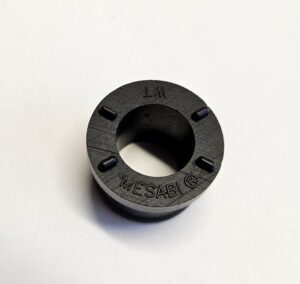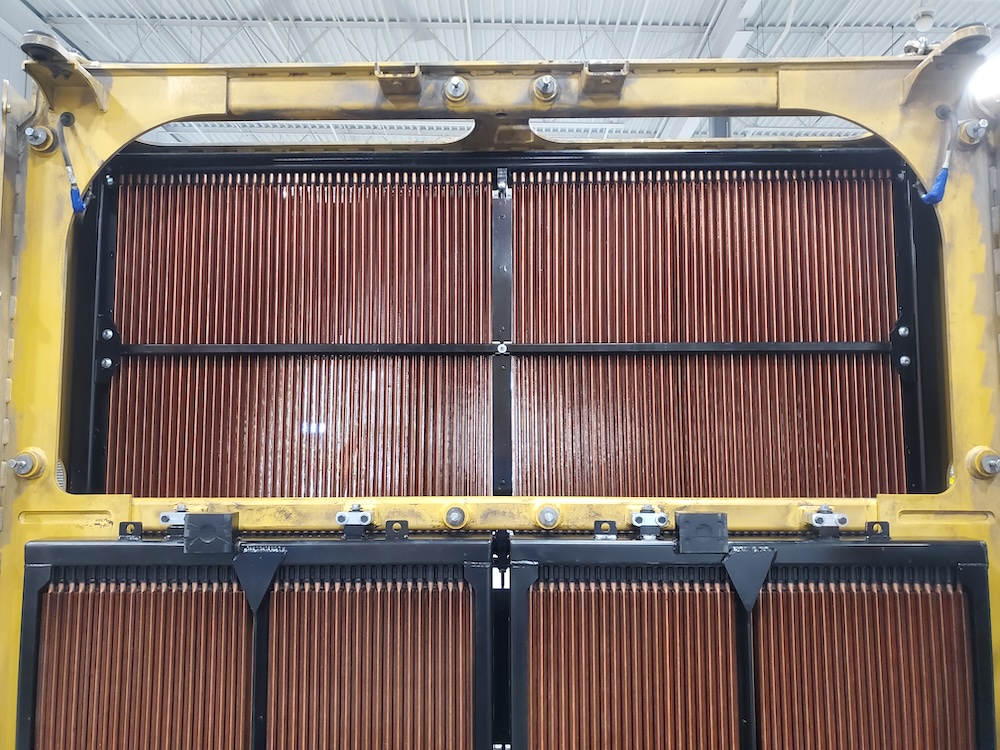Don’t be scammed by zombie-like Mesabi radiators that don’t live up to the performance of the genuine thing.
Something wicked this way comes, and it’s not a witch brewing potions or a white sheet with eye-hole cutouts. It’s something much more sinister, because, to an untrained eye, it may seem innocent. Put up your scarecrow and clutch your garlic, because the Mesabi-like radiator is running rampant.
“Over the years, we’ve had many manufacturers try to either copy or make similar designs to the Mesabi. We consider it a form of flattery,” said Josh Mitchell, application engineer at L&M Radiator. “To a point – such as when a customer calls us because they’re having a problem and we inform them that it’s not a genuine Mesabi radiator.”
You may be wondering: What could be wrong with a radiator that’s similar to a Mesabi?
Well, the problem is, these counterfeit radiators appear similar to a Mesabi radiator, but, in reality, they are far worse. The design and materials are significantly cheaper, and the engineering is often lazy. So, you may as well buy any other non-Mesabi radiator. Mesabi radiators are built to outlast the life of your machine. Any level of performance less than that is a waste of your time and money. One thing’s for sure – when it comes to a genuine Mesabi – there’s absolutely no competition.
“A Mesabi-like radiator may appear identical or very similar to our style,” said Chris Domogalla, design and application engineer at L&M Radiator, “but we’ve had over 65 years of experience and testing to ensure that our product is what our customers need. We want to make a product that is so good that we don’t get a call back because there are zero issues. We want to solve people’s problems and give customers the most reliable product on the market.”
Don’t get too spooked now. There are plenty of things you can do to make sure the radiator in your machine is a genuine Mesabi radiator. Here are some suggestions from the industry-leading engineering team at L&M Radiator on how to spot a fake when you see one:
First thing first, look for the logo —
More often than not, if you have a genuine Mesabi, you’ll find a Mesabi sticker on the radiator tank. Even better, look for an L&M tag with the exact part number on it. If you don’t see the Mesabi logo or a part number, go ahead and check the seals.

“One way to tell that your seals are genuine Mesabi seals is that on the top of the seal, the Mesabi logo and the part number are molded into the seal,” said Ryan Jaeger, a design and application engineer at L&M Radiator. “You can often tell just by looking at the top of the seal if you’re dealing with a genuine Mesabi part.”
If you still don’t see the Mesabi logo, don’t fret, sometimes a Mesabi radiator won’t feature the logo if it came first-fit on an Original Equipment Manufacturer (OEM) machine.
Check the tubes and seals for design flaws —
Even if you can’t find any traces of a Mesabi logo, you may be able to tell a genuine Mesabi from a counterfeit by inspecting the design of the tubes and seals.
“A lot of the counterfeits don’t understand the processes that we undergo to make our tubes and seals,” said Domogalla. “If you see seals that have swelled up, cracked, or degraded over time, those are typically counterfeit seals. Mesabi seals are made of L&M’s own specified material that we’ve developed over the years and have continuously tested in our labs to exceed expectations.”
Test it out –
If a radiator is not a genuine Mesabi radiator, it will likely begin to have problems within the first one thousand hours of use. If you encounter issues that quickly, that’s a red flag that you have a counterfeit on your hands.
Consider your location –
Mesabi-like radiators are more common in South America and Asia than in other places around the world. If you are located in these regions, take extra measures to ensure your Mesabi is genuine.
Consider where your radiator came from –
The best way to ensure you receive a genuine Mesabi radiator is to purchase it through L&M Radiator or an OEM. If you received your radiator from any other place or method, you might have a counterfeit.
Finally, call L&M –
There’s no one who can spot a genuine Mesabi radiator better than the sales representatives and engineers at L&M Radiator. That’s why they recommend you call them directly if you have any doubts.
“We have had customers call us up and say that our radiators are failing, but in reality, they’re copycat radiators,” said Domogalla. “The bottom line is, if you have any doubts or questions about your radiator, contact us. We’re here to help.”
L&M Radiator: The Mesabi Difference
For more stories similar to this one, visit The Mesabi Exchange on www.Mesabi.com.
To contact a sales representative, click here.

